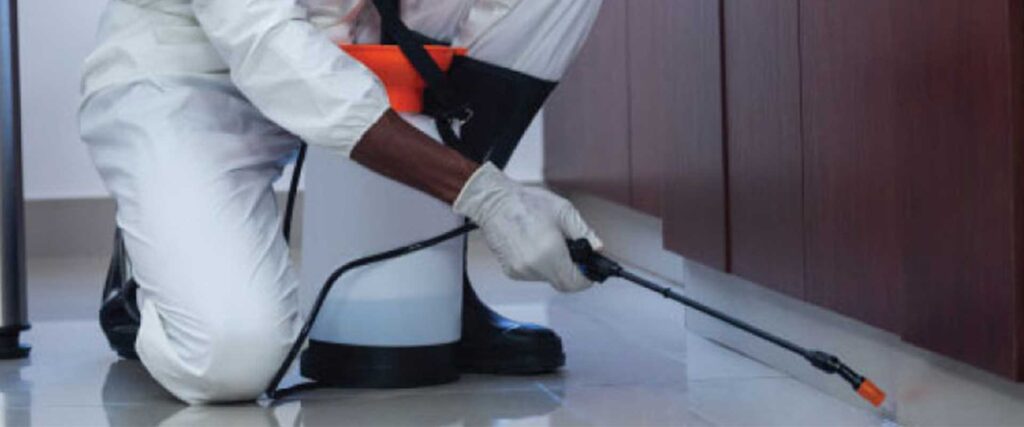Table of Content
Useful DIY Pest Control and Fumigation Pointers
Pest problems can be a nuisance in homes and businesses. Whether you're dealing with ants, cockroaches, rodents, or mosquitoes, it’s important to take action before the situation worsens. While professional pest control services are available, there are also many effective DIY methods that can help you tackle common pest issues. This article provides useful tips and pointers for DIY pest control and fumigation.
Understanding DIY Pest Control
DIY pest control refers to using non-professional methods to manage and eliminate pests from your home or business. The benefits of DIY pest control include saving money, using natural solutions, and having immediate access to treatments. However, it's essential to ensure that the methods used are safe and effective.
Common Household Pests and DIY Solutions
Here are some common pests and DIY solutions to help you deal with them:
1. Ants
Ants are one of the most common pests found in homes. They can invade kitchens, food storage areas, and other places.
DIY Solution:
- Vinegar Solution: Mix equal parts of water and vinegar in a spray bottle. Spray this mixture on ant trails and entry points to disrupt their scent trails and deter them.
- Diatomaceous Earth: Sprinkle food-grade diatomaceous earth around ant nests. It kills ants by damaging their exoskeletons.
2. Cockroaches
Cockroaches are not only unpleasant but can also spread diseases. These pests thrive in dark, damp places.
DIY Solution:
- Baking Soda and Sugar: Mix equal parts of sugar and baking soda. Place the mixture in areas where cockroaches are commonly found. The sugar attracts the roaches, and the baking soda kills them.
- Essential Oils: Cockroaches dislike the smell of essential oils like peppermint, lavender, or eucalyptus. Mix a few drops of oil with water in a spray bottle and apply it in areas where cockroaches hide.
3. Rodents
Rodents like rats and mice can cause significant damage to property and spread diseases.
DIY Solution:
- Peppermint Oil: Mice are repelled by peppermint oil. Soak cotton balls in peppermint oil and place them in areas where rodents are active.
- Trap: Use snap traps or humane traps to capture and remove rodents from your property.
4. Mosquitoes
Mosquitoes are not just annoying, but they can also carry diseases such as malaria and dengue.
DIY Solution:
- Citronella: Citronella candles and oils can help keep mosquitoes away. You can also plant citronella grass in your garden to create a natural barrier.
- Mosquito Repellent Spray: Make your own mosquito repellent by mixing 1 tablespoon of witch hazel, 1 tablespoon of vegetable glycerin, and 10 drops of essential oils like lavender or eucalyptus. Spray it on exposed skin to keep mosquitoes away.
Fumigation for Pest Control
Fumigation involves using chemicals or gases to eliminate pests from a space. While fumigation is often carried out by professionals, there are certain situations where a DIY approach is possible. However, it's important to follow safety guidelines when using fumigation products.
When to Use Fumigation:
- Severe Pest Infestation: If you have a large-scale pest problem, such as a major cockroach or termite infestation, fumigation may be necessary.
- Storage Areas: Fumigation can help eliminate pests in storage areas, particularly if you're dealing with insects like moths or bedbugs.
DIY Fumigation Tips:
- Read Instructions Carefully: Always follow the instructions on any fumigation product you use. Use the right amount for the size of the area being treated.
- Ventilate the Area: After fumigation, make sure the area is well-ventilated to allow any fumes to clear out before you enter.
- Safety Precautions: Wear protective gloves and masks while handling fumigation chemicals. Keep children and pets away from the area being fumigated.
Preventive Measures to Avoid Future Pest Problems
To prevent pests from returning, it's important to take proactive steps. Here are some simple preventive measures you can follow:
1. Seal Entry Points
Inspect your home or business for cracks and gaps in windows, doors, and walls. Seal these entry points to prevent pests from entering.
2. Keep Your Home Clean
Regular cleaning can help reduce the likelihood of pest infestations. Store food in airtight containers, and dispose of garbage regularly.
3. Eliminate Standing Water
Standing water attracts pests like mosquitoes and cockroaches. Fix any leaks and ensure there are no puddles in your home.
4. Use Natural Repellents
Many pests can be repelled with natural solutions like essential oils, herbs, or plants. For example, planting lavender or marigolds in your garden can help keep pests away.
DIY pest control and fumigation can be highly effective when done correctly. By using simple solutions like vinegar for ants or peppermint oil for rodents, you can manage pest problems without the need for professional services. Remember to take preventive measures to avoid future infestations and always follow safety guidelines when using fumigation products. With these pointers, you can keep your home or business pest-free and enjoy a healthier environment

